[TTA][CLS] LSA: Label Shift Adapter for Test-Time Adaptation under Covariate and Label Shifts
LSA: Label Shift Adapter for Test-Time Adaptation under Covariate and Label Shifts
- paper: https://arxiv.org/abs/2308.08810
- git: X
- ICCV 2023 accepted, (인용수: 1회, ‘23.11.29 기준)
- downstream task : TTA for CLS
1. Motivation
-
기존 TTA 연구들은 covariance shift만 고려하고, source & target 간의 label shift가 있는 상황에서는 잘 되지 못함을 발견함
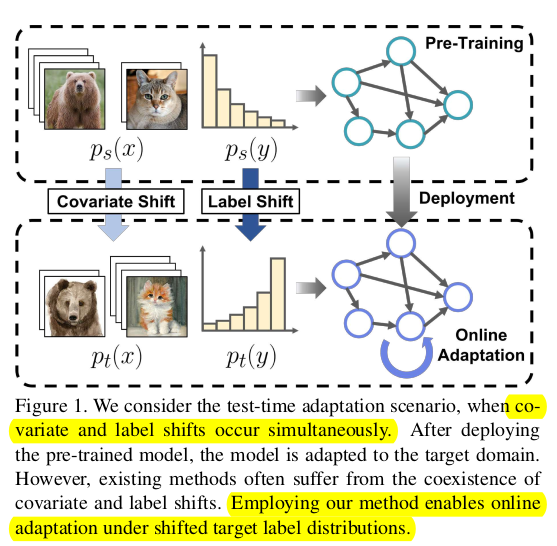
-
새로운 label shift adapter를 제안하여 label shift & covariance shift가 있는 real-world에 근접한 TTA를 풀고자함
-
특히 Class imbalance한 source data인 long-tail problem에서 shift를 풀고자 함
-
이는 기존 연구들에서는 학습이 안됨 -> Entropy minimization을 하면, over confident한 class에 대해 더 over-confident해지기 때문!
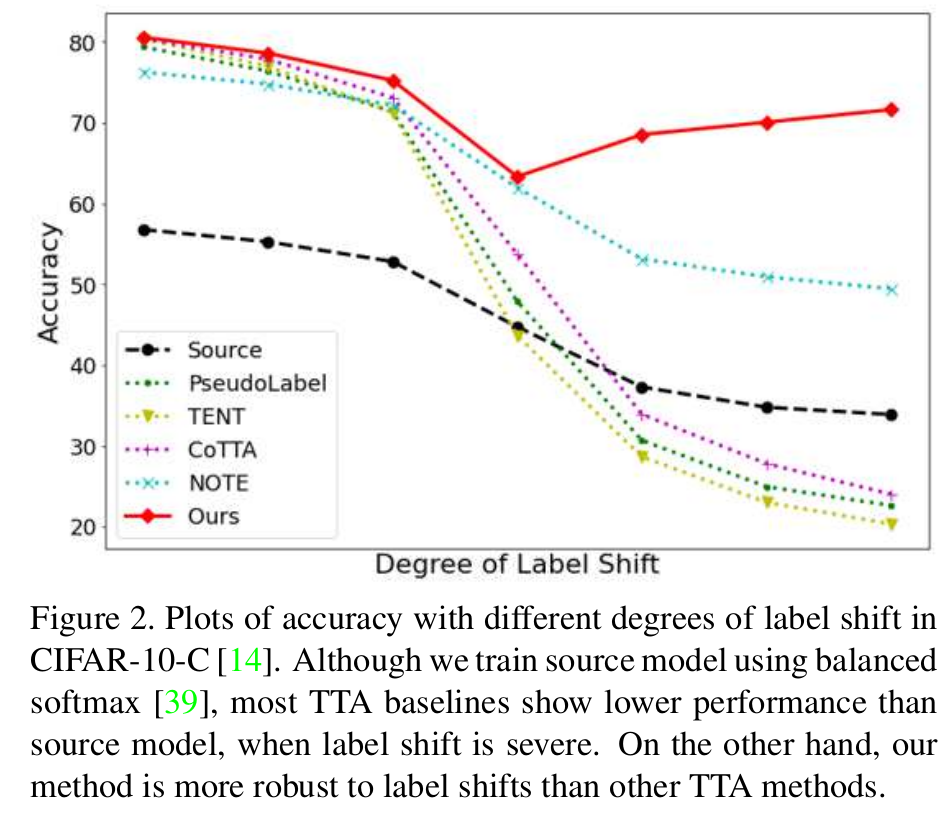
-
2. Contribution
- label distribution을 예측하는 label shift adapter를 제안함
- input: source label distribution (+ uniform distribution, inverse label distribution)
- output: target label distribution의 optimal parameter
- 장점: Computationally efficient & model structure agnostic함
- Model의 구조와 상관없이 applicable한 방식임
- class-imbalance label distribution에서 성능 향상을 보임
-
3. Methods
3.1 Problem Formulation
-
Covariance shifted
\[p_s(x) \neq p_t(x)\] -
Label shifted
\[p_s(y) \neq p_y(y)\]- 특히 source label 분포가 long-tail인 경우, 기존 TTA는 major class의 bias되는 문제를 해결하지 못함
3.2 Label Shift Adapter
-
Model $f$가 dynamically target label distribution에 adapt하는 adapter를 제안함
-
Overview
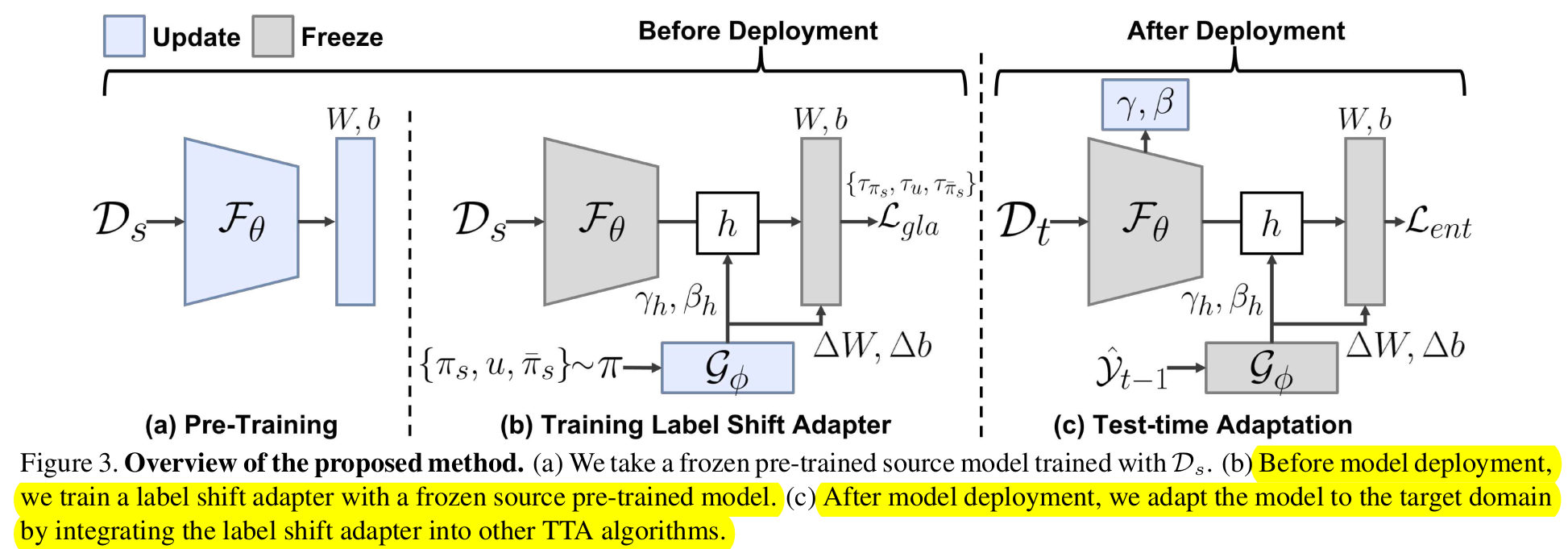
- Pre-Training: Source model을 학습하는 단계
- Training Label Shift Adapter : Frozen pretrained model로 adapter를 학습하는 단계
- Test-time Adaptation : Affine parameter를 optimze하는 단계. Target Label distribution에 따라 affine parameter를 optimze
3.3 Label Shift Adapter
-
$\mathbb{G}_{\phi}$
-
input : label distribution $\pi \in \mathbb{R}^c$
-
output
- affine parameters $\gamma_h \in \mathbb{R}^{1 \times d}$, $\beta_h \in \mathbb{R}^{1 \times d}$
- Classifer weight differences $\Delta W \in \mathbb{R}^{d \times C}$, $\Delta b \in \mathbb{R}^{1 \times C}$,
-
Prediction after Optimization

- $\Delta W$, $\Delta b$: Classifer head에 대한 weight만 업데이트 수행함. 이는 모델의 구조가 어떻든 적용 가능하며, Efficent하게 설계하기 위함.
-
-
Generalized logit adjusted Loss
- Controlled bias를 학습에 활용하여 long-tail problem을 학습할 때 사용하는 Loss

- $\pi_s$: source의 label distribution, uniform distribution, inverse source label distribution 중 1개로 매 iteration마다 선택됨
- $\tau$: $\pi_s$가 선택되는 분포에 따라 0, 1, 2로 선택됨
- 0: no bias
- 1: uniform bias added
- 2: inverse bias added
- $y_i$: source의 label
- $\hat{y}_i$: softmax 이전 model의 출력
- $\sigma$: softmax
-
$\tau$가 커짐에 따른 decision boundary의 움직임 (minor class -> major class)
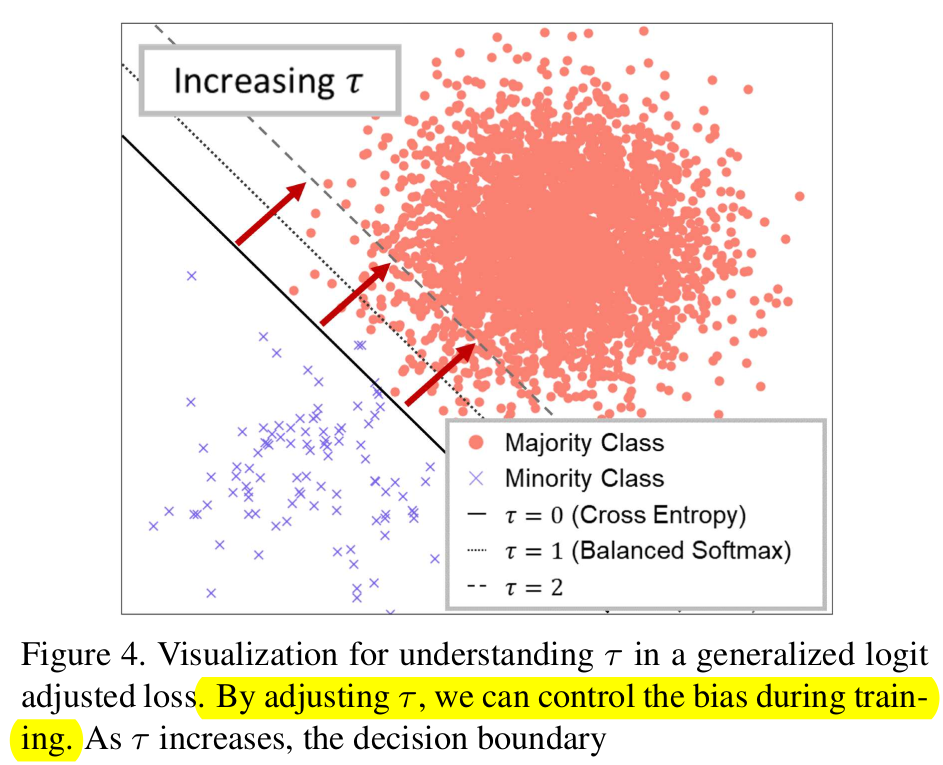
3.4 Test Time Adaptation
-
Entropy Minimization Loss

-
$\hat{y}$: EMA로 업데이트된 test pseudo label

- $\bar{y}_t$:

- $\hat{y}^i_t$: Label Adapter로 optimize된 값
- $\bar{y}_t$:
-
4. Experiments
-
CiFAR-10-C / CiFAR-100-C
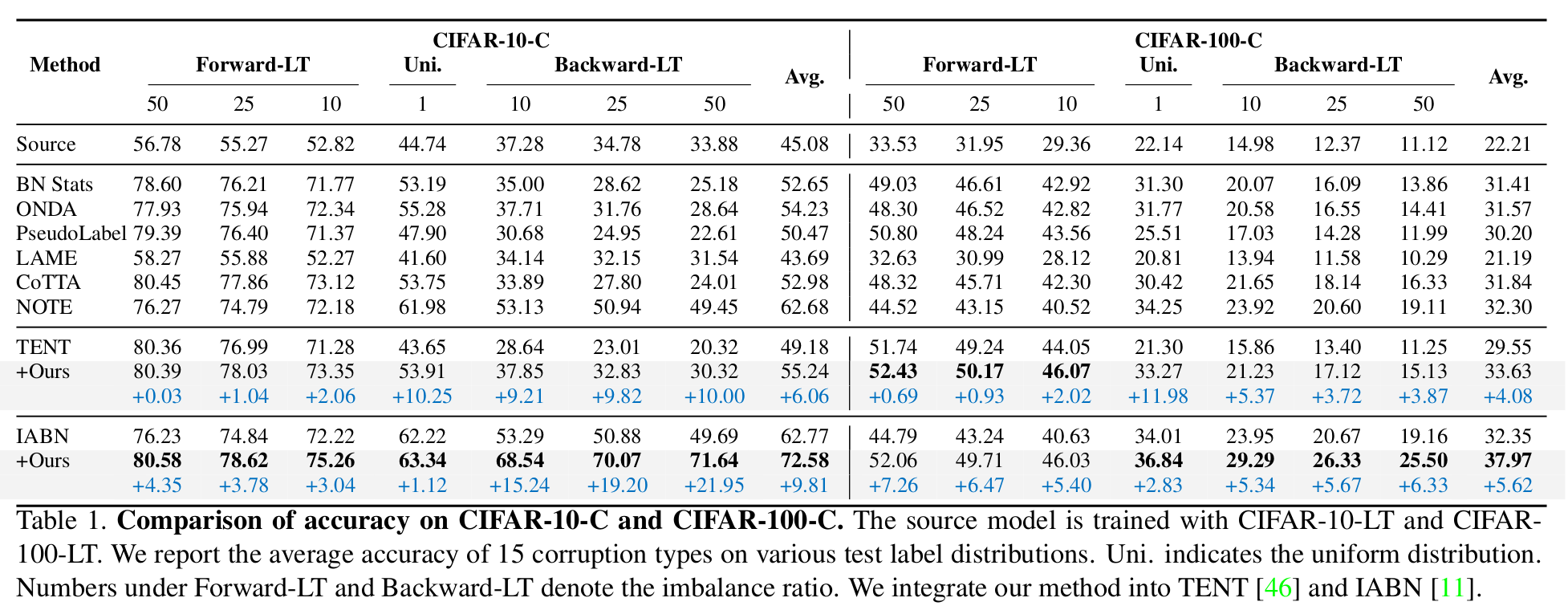
-
ImageNet-C
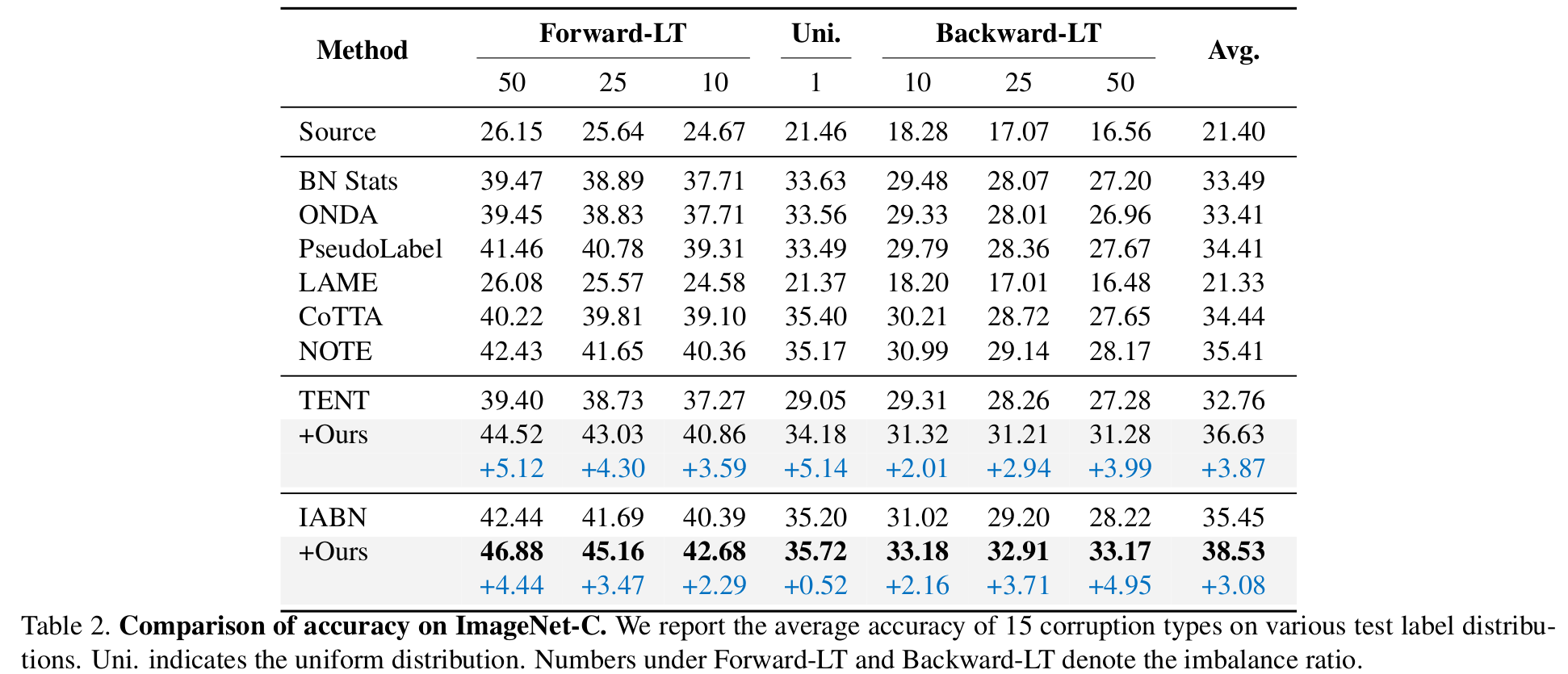
-
VisDA-C & OfficeHome
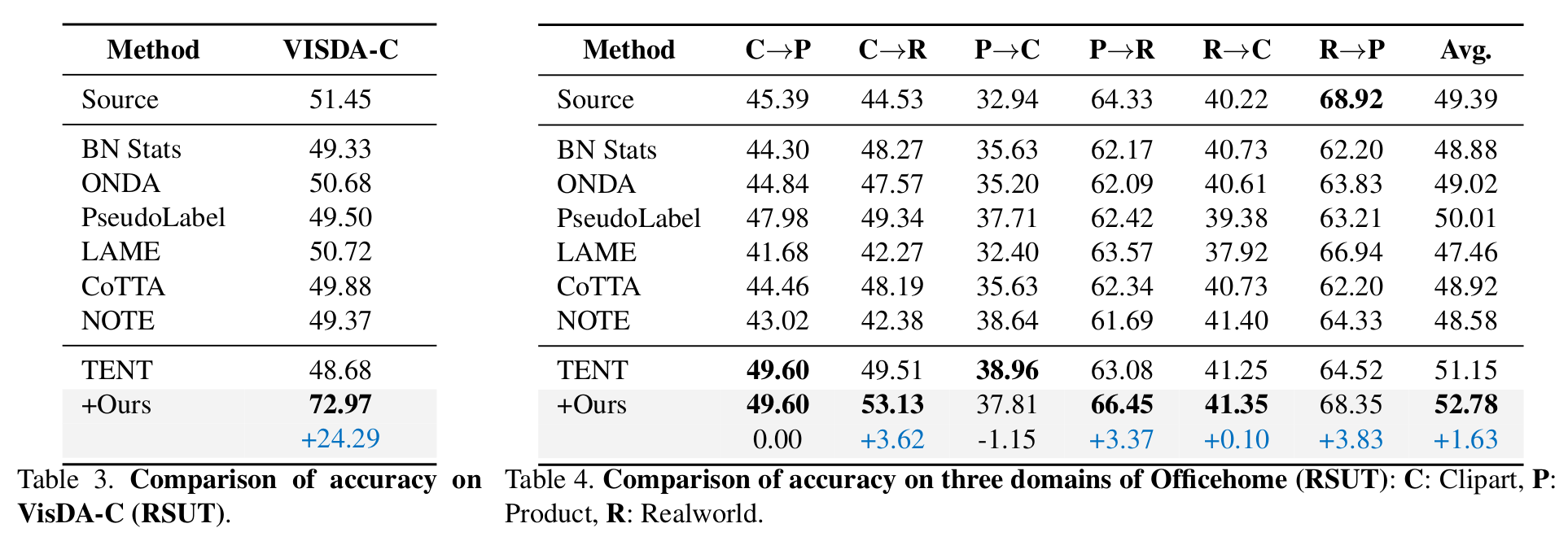
-
DomainNet

-
Upper bound vs. Label Shift Adapter
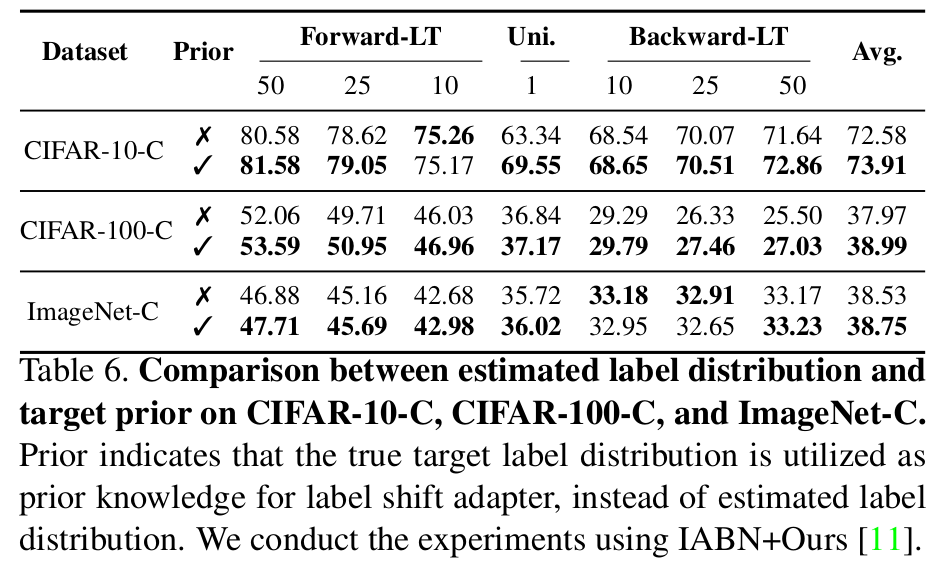
- Comparable 결과를 출력함
-
Long-Tailed Problem에 특히 효과적 (Backward-LT)
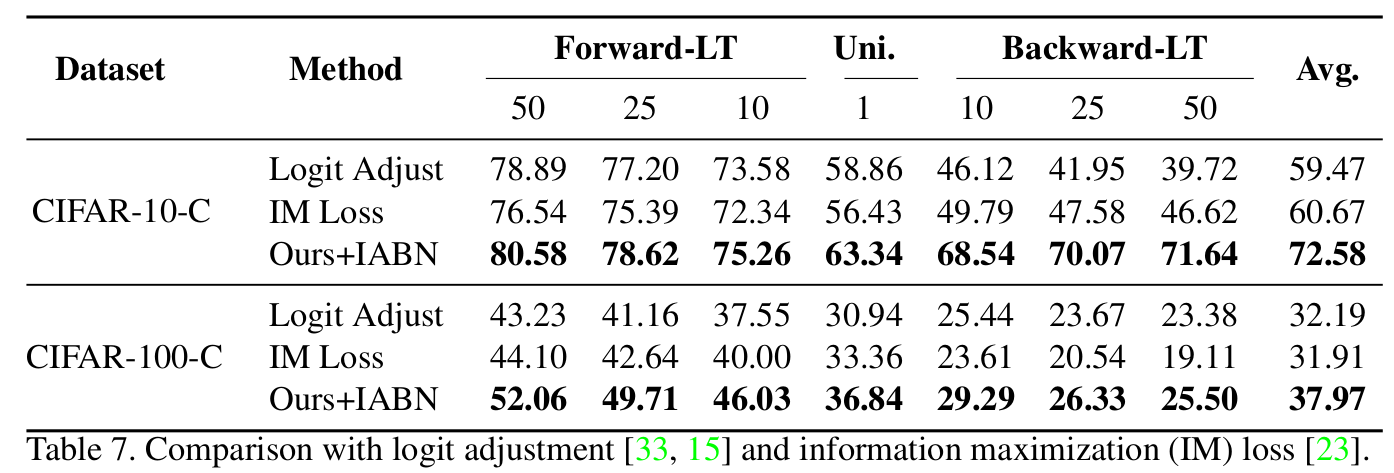
-
Computational Cost
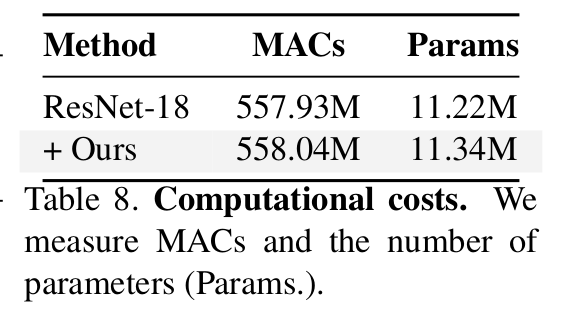
- 무시 가능한 수준
-
Estimated Label Distribution
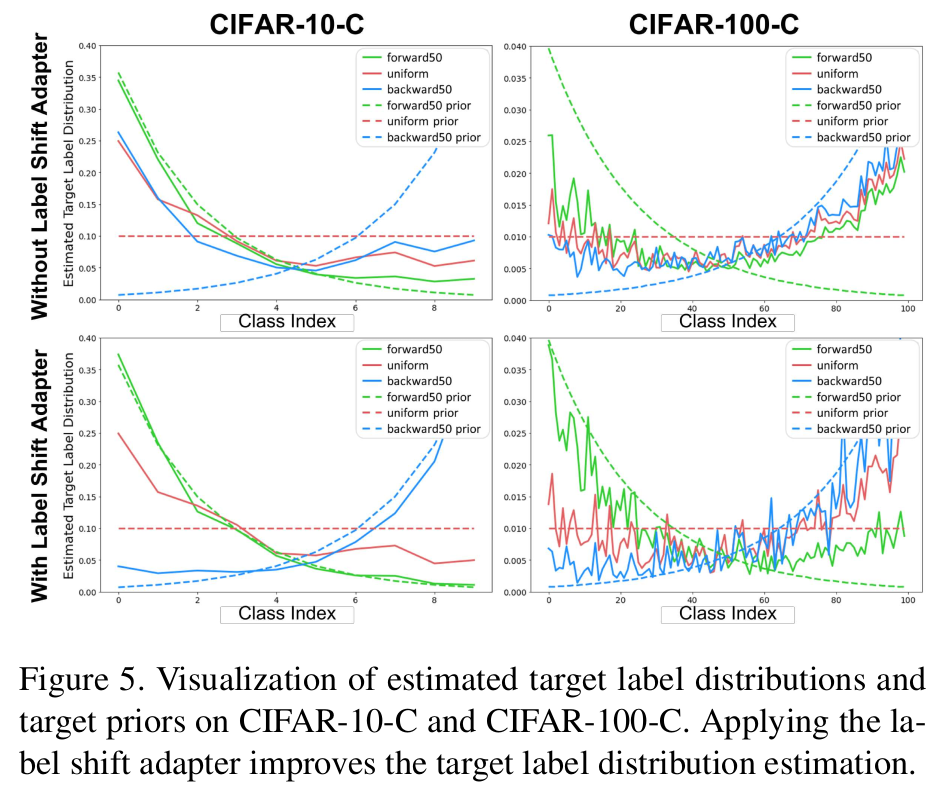
- With / Without LSA가 차이가 큼 -> LSA가 효과있음을 입증